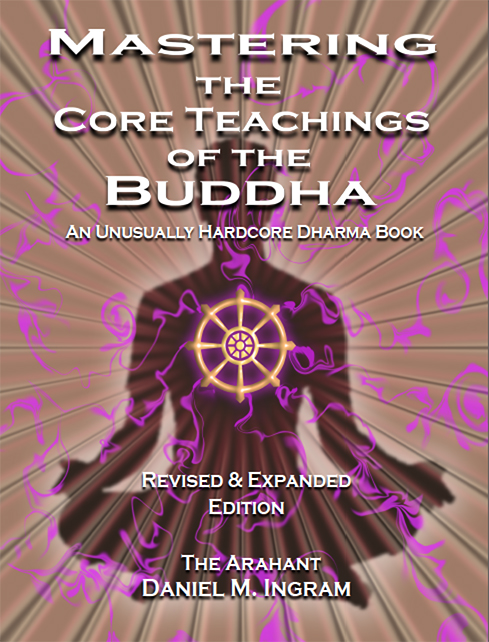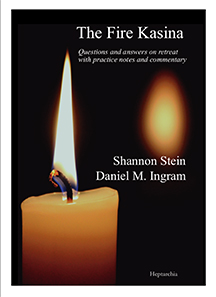14. Post-Retreat Advice
← 13. A Few Odds and Ends About Retreats | 15. Postures →
It is very important to consider what you will be doing in the few days and perhaps weeks after a retreat. Retreats change the brain, sensitizing it, enhancing it, optimizing it for deep investigation but often not for the more intensive rigors of daily life. The longer and deeper the retreat was, particularly if it was a silent retreat, the stronger this effect can persist. Thus, leave some time after the end of a formal retreat for a gentle re-entry into your ordinary life when possible, unless your ordinary life is already relatively peaceful and contemplative.
I think that you should set aside afterwards at least a day per each week of the retreat for skillful reintegration, if you can possibly spare the time. During reintegration days, take it easy with speaking, driving, and challenging tasks, as these can sometimes feel surprisingly jarring, draining, and harsh. They can also produce strange effects, such as headaches, irritability, excitability, and emotional reactions in us that would otherwise not be expected. If you don’t have the time between the retreat and the life you are returning to, then consider cutting the meditation hours and intensity in the last few days of a retreat if you have gone deep.
It is common in some people who don’t know about these effects to start talking to other retreatants excitedly and unstoppably about their amazing experiences the moment the retreat ends and the noble silence is lifted, despite the warnings not to do so. Most learn a short while later that talking too much too soon is a pretty bad idea physically, energetically, mentally, and socially. Even less intensive retreats that incorporate a bit more social interaction and less strict silence can produce these sorts of sensitizing effects. So, my strong advice is to take it very easy on yourself and those around you for a few days after any retreat and perhaps for more than a few days after a more intensive one. Gradually reintroduce yourself to situations that involve more interaction and stimulation.
If you find yourself experiencing bad effects after a retreat due to overly quick re-entry, do your best to find time when you can close your eyes, lie down, and reduce the stimulation. Bringing the energy down from the upper parts of your body (head, eyes, mouth, throat) to the lower parts (chest, stomach, pelvis, legs, feet, hands) will likely help. Warm baths help. Soothing music and mellow surroundings may help. Silence is golden. As a voice said to me once in a dream, “There are very few problems in your life that don’t benefit from the proper application of silence.” Post-retreat is one of those times.
Retreat settings can also normalize unusual language, concepts, behaviors, modes of dress, and paradigms in us to such a degree that we may forget that the rest of the world wasn’t on that retreat and didn’t just go through what we did. Thus, it can be easy to assume that everyone in the world will now be as excited as you are about meditation and about your experiences, an assumption that rarely works out. Similarly, descriptions of experiences we have on retreats may not sit well with those who weren’t there, so be sensitive to this and employ appropriate discretion in what you share and with whom about the more unusual aspects of the retreat, or you, like me, may learn the hard way how socially toxic this can be.
If you can’t possibly build in the time to allow for proper re-entry to ordinary life after a retreat, then you might want to explain to those around you, such as family, co-workers, and the like, that you might need a bit of additional calm, space, silence, and low-key interactions for a few days. They may not have the sense or care to listen, but you can at least try. If you find yourself succumbing to a post-retreat reaction of some sort in your interactions with other people, don’t hesitate to apologize and normalize the situation. Simple statements such as, “I was just on a very quiet retreat and ordinary life has been a bit much after it, so please forgive me if I seem tense or a bit off,” usually work better than more elaborate, dharma-lingo explanations.
Retreats can also produce some strange and unusual effects, as we will see in the sections that describe the stages of concentration and insight. Some of the middle and later stages of insight can cause some profound elevations and depressions in mood and functioning that can persist for substantial periods of time after a retreat ends. I go into more detail about those effects and some strategies for dealing with them later when I describe those stages. The key point here is that we can’t always predict what sort of possibly unusual mind state we will be in when we come off retreat, thus providing further reasons to give ourselves buffer days afterwards.
On that same theme, those same stages of concentration and insight can be so profound and fascinating that we may understandably feel compelled to talk about those back home after we get off-retreat. If we are coming back to a group of people who are well versed in meditation experiences, not prone to insecurity, jealousy, or competition, or at least open-minded about the wide world of meditative terrain, this may go just fine. However, you will notice that most people don’t fit all those criteria, and even not fitting one of them can cause conversations about the more unusual experiences and attainments that can happen on retreat to turn into social poison. So as already mentioned above, carefully consider who you can safely debrief with after a retreat before you even go on retreat, cultivating dharma social networks that can handle what might come out of your mouth afterwards. Consider yourself duly warned.

